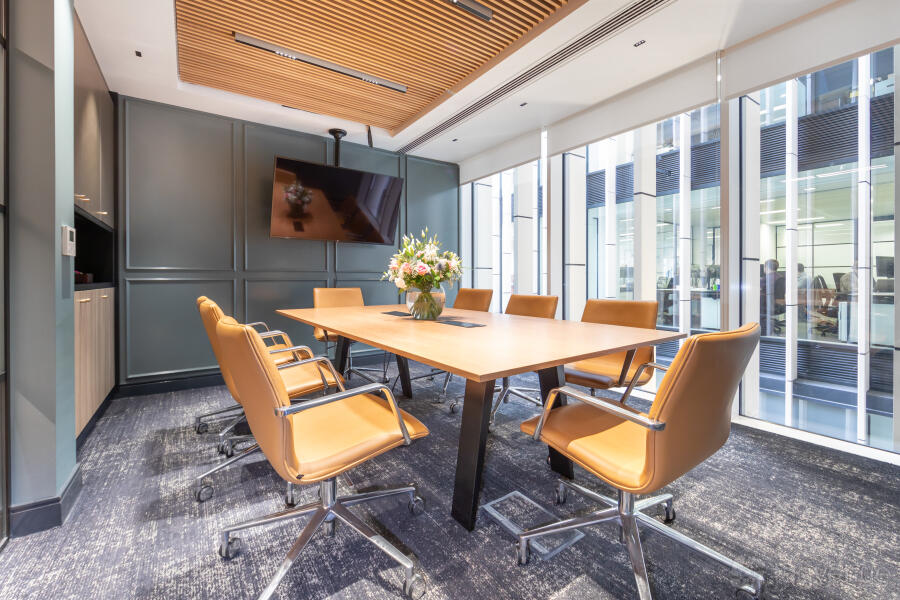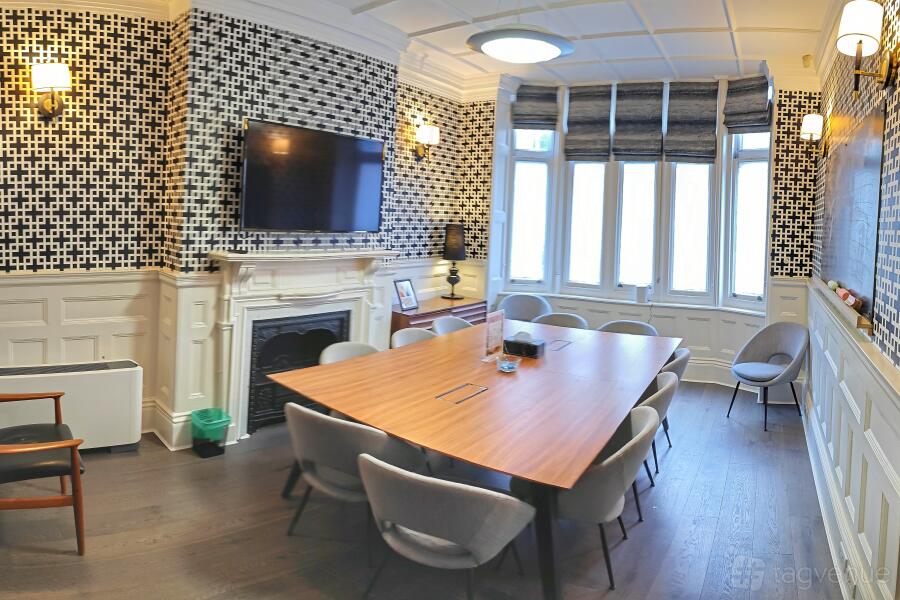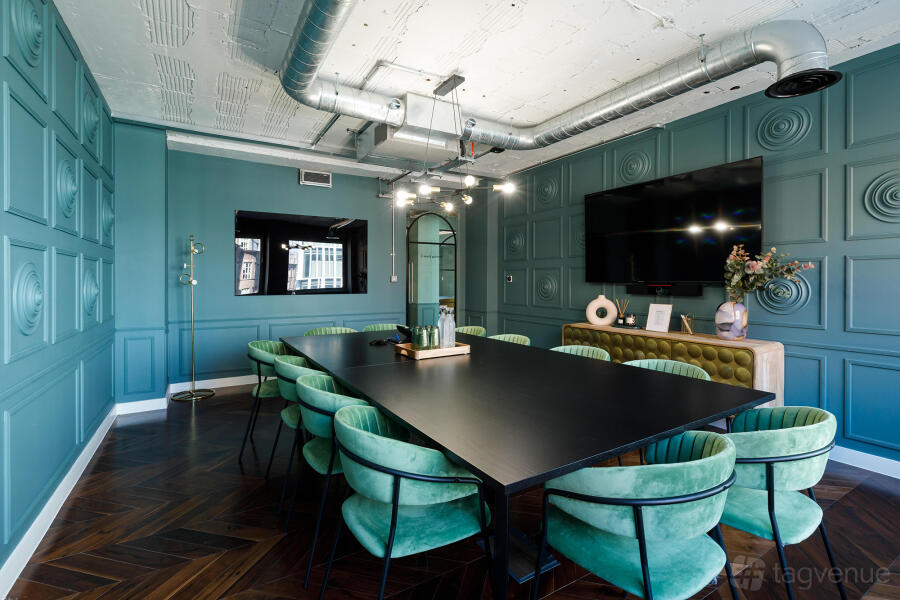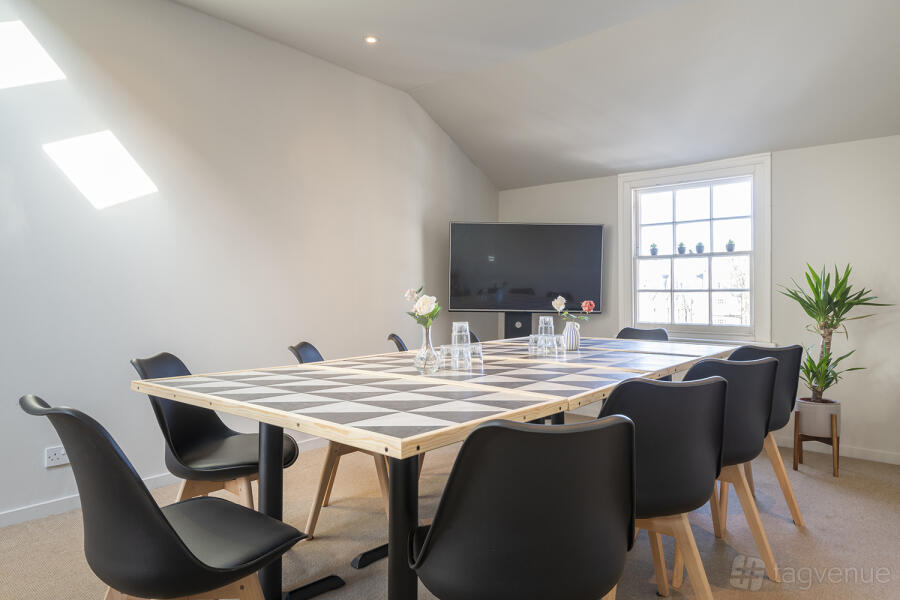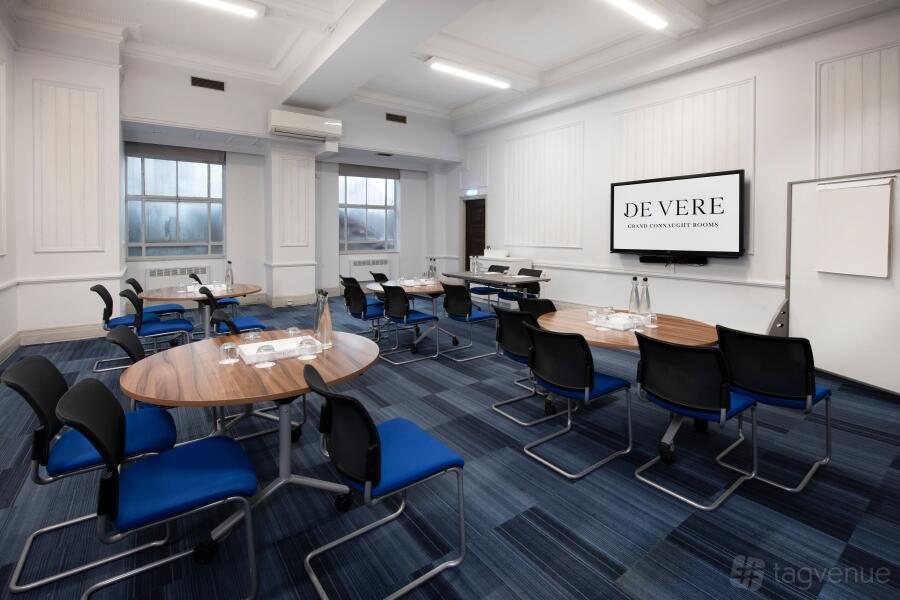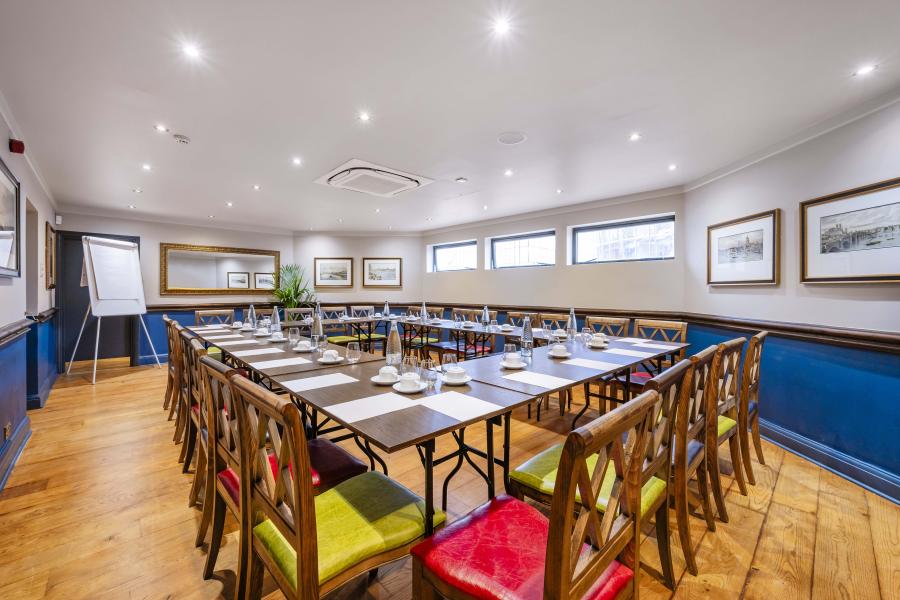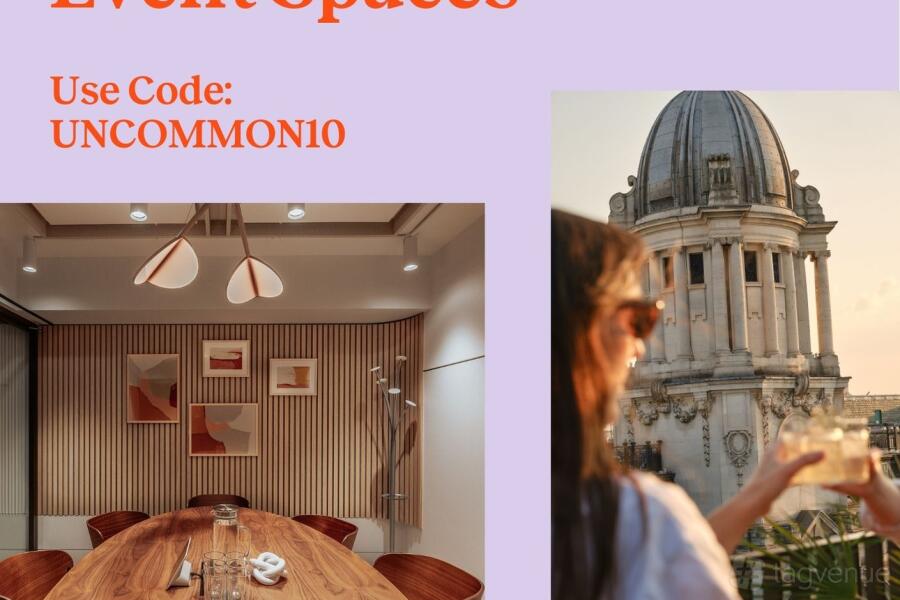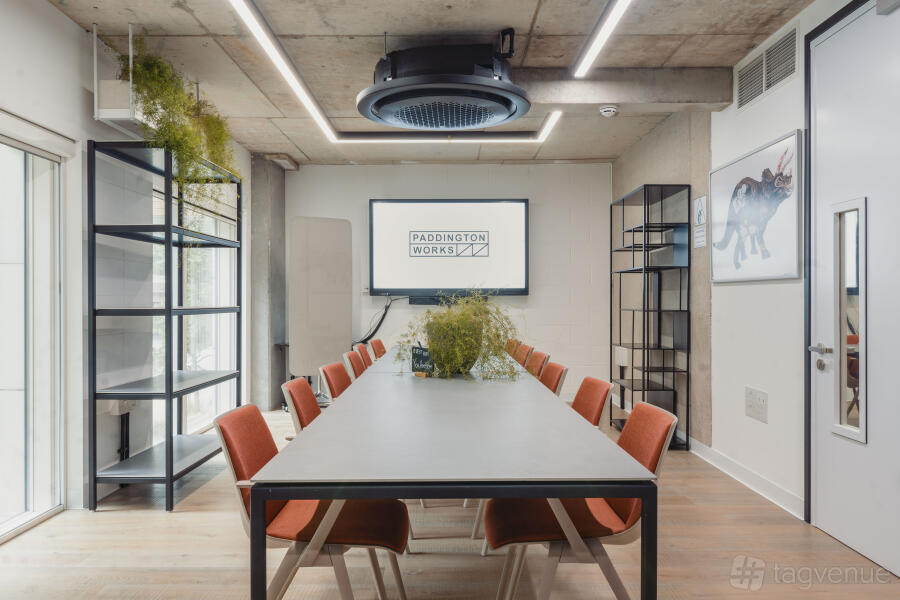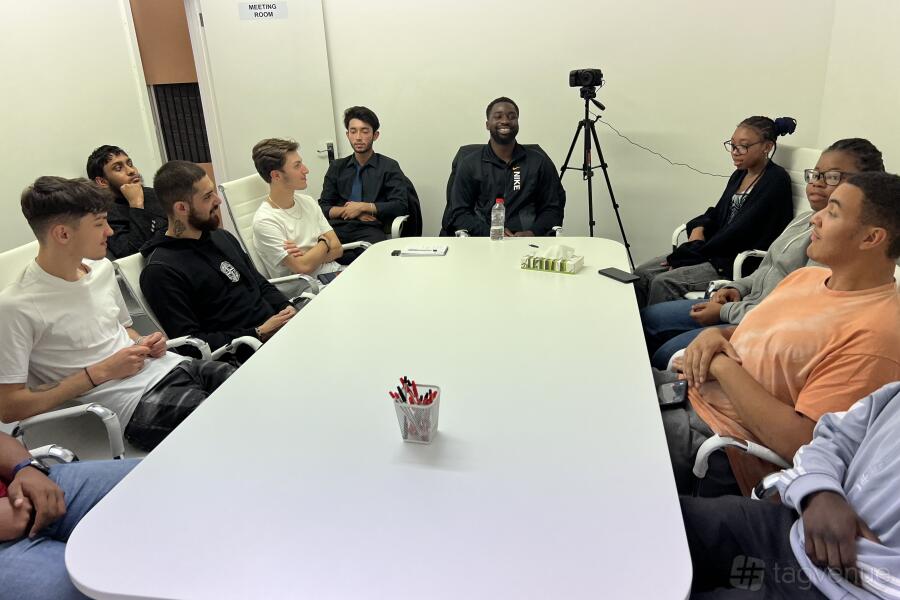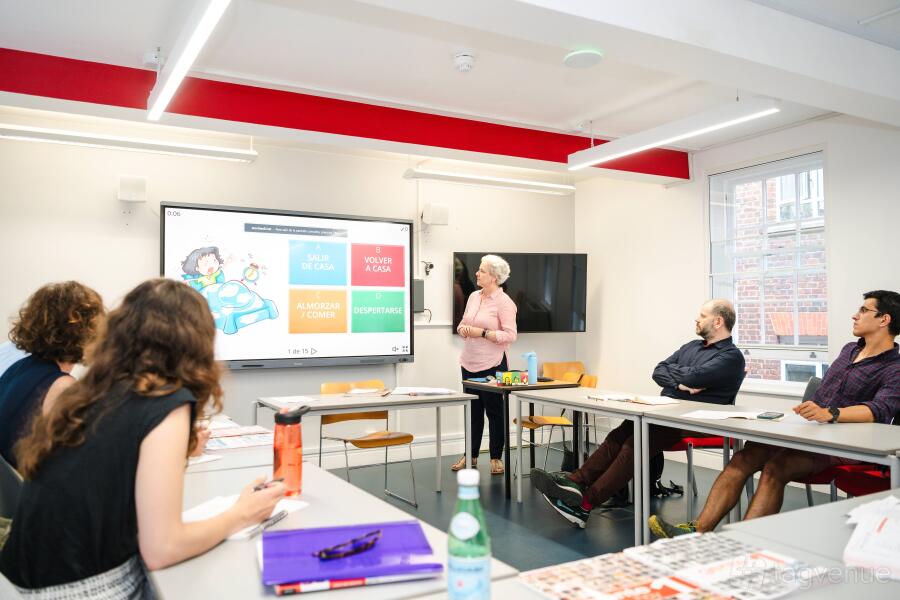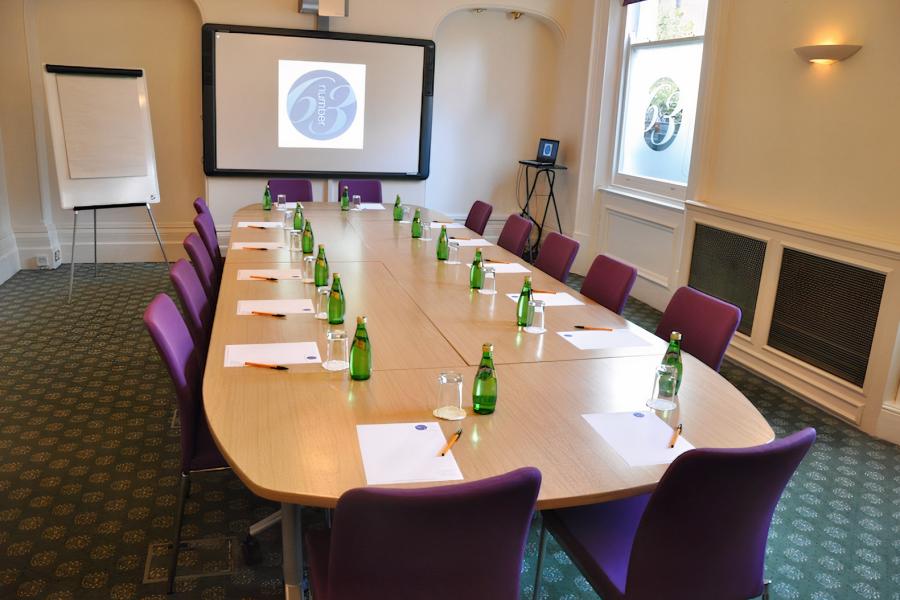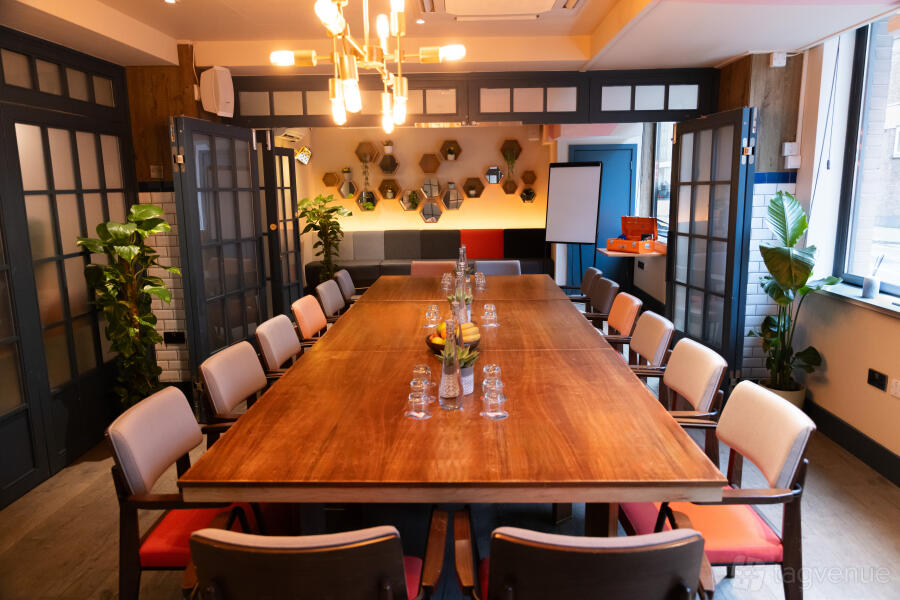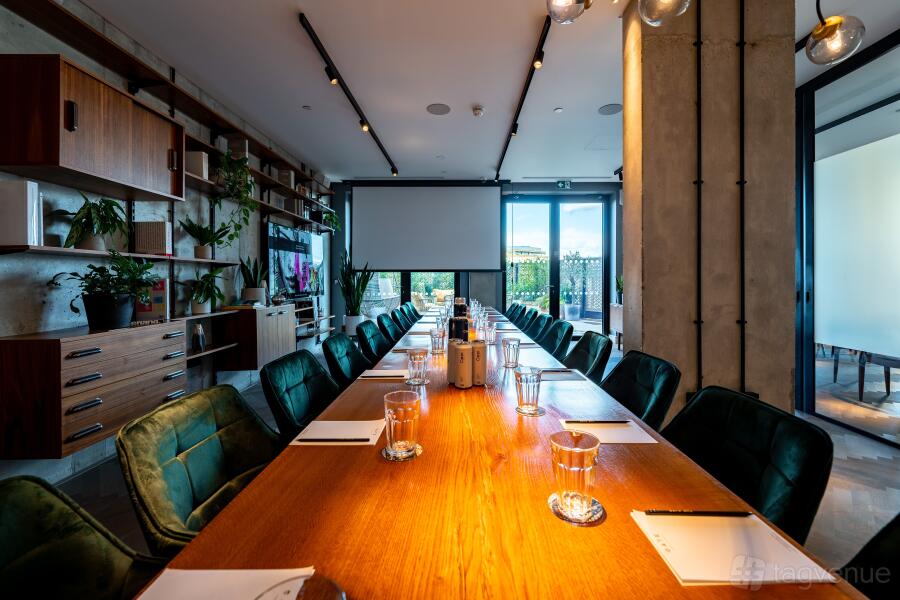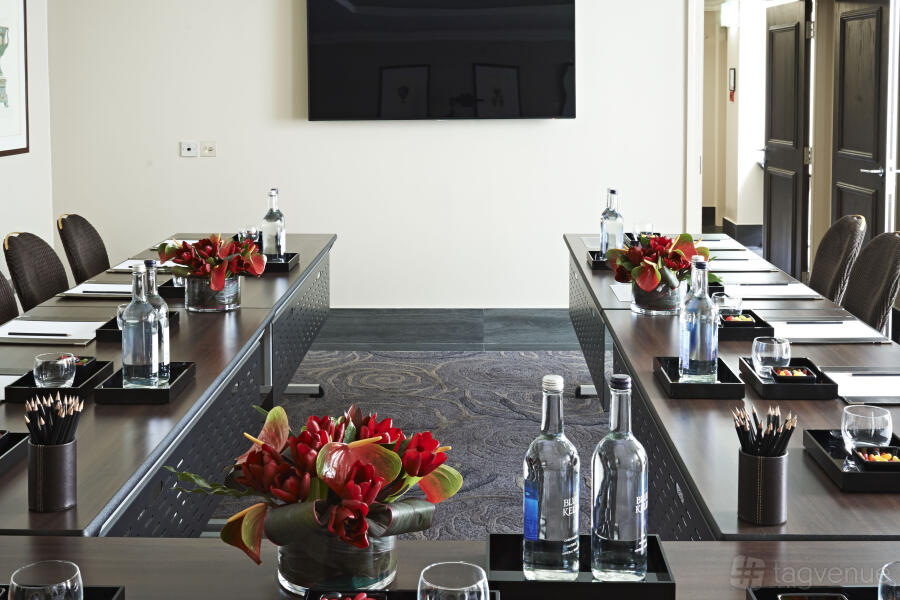Top Workshop Venues in London
No matter what type of space you're after, our top workshop venues in London are sure to come in handy. From state-of-the-art auditoriums to modern meeting rooms, we can point you in the right direction. The best workshops give participants information as well as new skills and a sense of accomplishment. They’re fantastic for active learning, brainstorming, problem solving and team building. But planning a great workshop is no mean feat - it requires organisation, focus and a lot of creativity. Don’t know where to start? No problem, Tagvenue is here to help. Check out our large selection of workshop venues in London and hire your favourite one with no hassle.
-
from £30
hire fee / per hourCheck availabilityMeeting Room in near Waterloo
6 guestsThe Travel Cafe WaterlooLambeth North StationSouth Bank, London#Supervenue
JJohn P.
“Excellent space ideal for impromptu meetings or workshops. A real gem! ” -
from £144
hire fee / per hourCheck availabilityHolford
8 guestsLandmark: Chancery Lane, LondonChancery Lane StationHolborn, London#Supervenue
JJaffar K.
“I'll definitely be booking all of my client meetings and workshops here going forward. ” -
from £20
per eventCheck availabilityThe Office: Meeting Space
14 guestsAnomalous SpaceAngel StationAngel, London#Supervenue
SStephen H.
“Great venue. Excellent location. Everything we needed for a day workshop. ” -
from £60
hire fee / per hourCheck availabilityMeeting Room Classic
12 guests54 Welbeck St W1G 9XSBond Street StationMarylebone, London#Supervenue
LLeanne P.
“Would definitely use it again but probably for a different type of workshop. ” -
from £95
hire fee / per hourCheck availabilityBright Open Space
24 guestsCloud X HQBrixton, London#Supervenue
KKarina R.
“It was perfect for our event (floral workshop) but would definitely keep this space in mind for other events. ” -
from £950
hire fee / per dayCheck availabilityMeeting Room 8
85 guestsMarlin WaterlooLambeth North StationSouth Bank, LondonHHelen L.
“Would definitely recommend to anyone who needed a venue in London for a workshop or other type of meeting. ” -
from £54
hire fee / per hourCheck availabilityCREO, Meeting Room 3
12 guestsWestgate HouseChancery Lane StationFarringdon, London#Supervenue
AAithne S.
“Great space for workshop, highly recommend ” -
from £60
hire fee / per hourCheck availabilityAngel Meeting Room
15 guestsFrequency AngelAngel StationAngel, London#Supervenue
RReneé
“Perfect space for my workshop, and the staff are super friendly. ” -
from £1500
hire fee / per dayCheck availabilityDerby Suite
45 guestsGrand Connaught RoomsHolborn StationHolborn, London#Supervenue
HHannah B.
“This is a favourite venue of mine, we had a great workshop and will be back! ” -
from £45
hire fee / per hourCheck availabilityLibrary
20 guestsDEVEREUX COURTTemple StationTemple, London#Supervenue
OOld B.
“Great place to host workshops, the staff was very helpful and my guests very happy. Thank You! ” -
from £210
hire fee / per hourCheck availabilityThe Warehouse & Snug
30 guestsSutherland LabsCovent Garden StationWest End, London#Supervenue
MMax
“Excellent venue for a team workshop. ” -
from £300
hire fee / per sessionCheck availabilityThe Boardroom
50 guestsDoggett's Coat and BadgeBlackfriars StationSouth Bank, London#Supervenue
AAlexandra S.
“Fast managing services, separate area, enough space for workshop ”
- 1
- 2
- 3
- ...
- 127
Capacity
Budget
Area type
Venue type
Catering and drinks
Accessibility features
Secure One of London's Best Small Workshop Venues
“Loved the ambience and the service was amazing ”
“The space was clean and no one else was there so we was very happy with the privacy for a shared Space ”
“The room was big enough for our event and AV was easy to use. ”
“Really good space, good service and worked well, will use again. ”
Hotels with Workshop Facilities in London
“Great venue for a meeting with a nice selection of bar snacks which I ordered after the meeting. ”
“Venue was just as pictured. Modern decor and amenities, clean. The staff we super helpful and kind. ”

FAQs about Top Workshop Venues in London
Workshop venues are available all across London. If you’re looking for space for a business workshop, you can use some of the meeting spaces in Soho. This trendy district of Central London has a surprising amount of nice professional board rooms with everything you need for a successful meeting. If you’re looking for more open and inspiring spaces, there are multiple venues around Shoreditch Church that would fit that description. And considering they are easily accessible from the A10, on top of having great reviews from Tagvenue customers, you won’t be disappointed.
Workshops can vary from spaces suitable for classes or activities such as yoga all the way to more professional spaces that might be more suitable for a training or meeting. Expect these spaces to be able to offer basic items such as AV equipment, tables, chairs, or whiteboards. Depending on the nature of the workshop venue, managers may have different types of art, photo or sound equipment available, so make sure to read through the venue pages and ask the managers for more info.
Workshop spaces in London can be found starting around £20 per hour or £300 per session. When searching for a price that suits your budget, make sure to check whether different days of the week or times have lower hire fees. (All data from Tagvenue.)
- Meeting rooms - For a business workshop, you need a space with a good amount of seats, that can also be opened up for design thinking or brainstorming sessions. London is a worldwide business hub, so you won’t have any trouble finding a nice meeting space for your next workshop.
- Blank canvas spaces - If you need lots of rooms of activities, blank canvas spaces are the way to go. These are extremely common across the entire Greater London area and they can be set up in any way you need them. Simply talk to your venue manager and see if they can help you fulfil your ideas.
- Creative spaces - If you want to make something or collaborate with artists, creative spaces will offer all you’re going to need. Dedicated spaces for photography, art and brainstorming are some of the features many of these venues will offer.
- Theatres and conference halls - if you’re after a large-scale open workshop or an inspiring presentation, you should think big. Theatres for hire in London have an interesting aura while most conference halls and event spaces will have all the amenities needed for a big workshop.
Your Guide to Hiring Workshop Venues in London
Organising your first workshop in London can feel daunting, but whether you're planning a class, meeting, or conference, the right venue can make all the difference. From versatile blank canvas spaces to spacious meeting halls, you’ll easily find the perfect workshop venue—hassle-free and with no extra fees. In order to make the process even easier, we’ve created this complete guide on how to organise a workshop, and how to pick and choose a workshop venue that meets all your needs.
How to Choose the Right Workshop Venue
Picking a great workshop venue makes a huge difference in the success of your event. If you're planning a business training, creative session, or team-building event, here’s what really matters:
- Purpose & Activities – Think about your agenda. Will you need space for group discussions, hands-on activities, or presentations? Choose a venue that can support your format.
- Facilities – Look for essentials like A/V equipment, projectors, whiteboards, strong Wi-Fi, and breakout areas for separate discussions. If your workshop runs long, easy access to bathrooms and a dining area is a plus.
- Accessibility – A well-connected venue saves time for attendees. Check public transport links, nearby parking, and wheelchair accessible if needed. Many venues list transport options—use them to your advantage.
- Location – For corporate workshops, staying near the office keeps things simple. If attendees are coming from different areas, pick a venue in a central, well-connected spot.
- Space & Layout – Size matters. Too big feels empty; too small gets cramped. Theatre seating works well for presentations, while round tables or open layouts encourage collaboration.
- Catering – Keeping people energized is key. Some venues offer in-house catering or allow outside food. At a minimum, provide water and light snacks.
- Equipment & Supplies – Business workshops often need office supplies, while creative sessions might require art tools or photography setups. Confirm what’s included to avoid last-minute surprises.
- Pricing – Workshop venues usually offer three pricing models:
- Flat hire – Pay by the hour, half-day, or full-day.
- Per person – Ideal for larger workshops with confirmed guest count.
- Minimum spend – The space is free if your group spends a set amount on food and drinks. If you meet the minimum, you only pay for what you order; if not, you cover the difference.
How to Organise a Workshop in London
A well-planned workshop keeps participants engaged and ensures everything runs smoothly. Whether you're hosting a business session, a creative class, or a team-building event, getting the details right is key.
Plan Your Workshop Step-by-Step
- Define Your Goal – Be clear about what you want to achieve. Business workshops may focus on strategy and collaboration, while creative workshops are more hands-on. A clear objective makes planning easier.
- Create a Simple Agenda – Structure your session with key phases: introductions, icebreakers, group work, brainstorming, and a wrap-up. Allow enough time for each task to keep things balanced.
- Prepare Materials in Advance – Business workshops often need whiteboards, projectors, and microphones, while creative sessions might require art supplies or music equipment. Many spaces provide essentials like AV equipment—check with the venue manager before hiring anything extra.
- Know Your Headcount – For private workshops, tracking RSVPs helps you book the right-sized space. For open events, set up an easy registration method, like an online form or email sign-up.
- Book the Right Venue – The space you choose makes all the difference. Look for a venue with the seating, setup, and amenities you need. Use Tagvenue to filter by capacity, location, and facilities. Venue managers can answer questions, provide equipment details, and arrange site visits.

